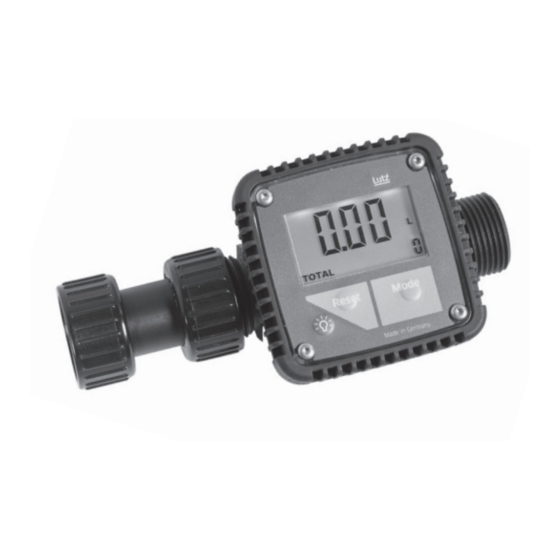
Summarization of Contents
About This Manual
1.1 Terms
Defines key terms like User and Children for understanding the manual content.
1.2 Target groups
Identifies target groups (User, Qualified personnel) and their respective tasks and responsibilities.
1.3 Associated applicable documents
Lists any documents that are associated with or referenced by this manual.
Warnings and Symbols
1.4 Warnings and symbols
Explains warning levels (Danger, Warning, Caution, Notice) and their consequences, plus common symbols.
1.5 Latest state
Provides information on where to find the most current version of the operating instructions.
1.6 Copyright
States the copyright protection details for the manual's content and images.
Safety Information
2.1 General safety information
Outlines general regulations to observe, product safety considerations, and effects of unauthorized modifications.
Duties of the operator
Details operator responsibilities including safety-conscious working, personnel qualification, warranty, and specific duties.
Proper Use and Hazards
Flow Meter Application Description
Explains the flow meter's function, components, and suitability for stationary and mobile use.
DANGER: Liquid Compatibility and Splashing
Warns about damage from incompatible liquids and injury risk from splashing.
DANGER: Explosion Hazard Warning
Alerts to explosion hazards and prohibits use in explosive environments or with flammable liquids.
DANGER: Temperature and Pressure Limits
Advises on risks associated with exceeding temperature and pressure limits, causing damage and injury.
2.2.1 Technical data
Lists detailed technical data for TR3-PP and TR3-PVDF models, including materials, ranges, and accuracy.
2.2.2 Liability
Clarifies manufacturer liability regarding product use, modifications, and user-related faults.
2.2.3 Prevention of obvious misapplication (examples)
Provides critical warnings and examples to prevent misuse, rupture, or malfunction of the meter.
Configuration and Identification
3.1 Identification
Explains the information found on the rating plate, including type, serial number, and specifications.
3.2 Display
Describes the LCD display layout, including volume displays, totalizers, units, and low battery alerts.
3.3 Keypad
Details the three keys on the front membrane: Reset, Mode, and Light.
3.4 Battery
Provides details on battery type, expected service life, and replacement procedures.
Transport and Storage Guidelines
4.1 Transport
Outlines steps for unpacking, checking for damages, and reporting discrepancies upon receipt.
4.2 Storage
Provides notices regarding potential property damage from incorrect storage and best practices.
Assembly Instructions
5.1 General
Covers general checks before assembly, installation stress, tightening torque, and display rotation.
5.2 Assembly with drum pump connection G1
Details the process of screwing the G1 drum pump connector onto the flow meter inlet.
5.3 Assembly with drum pump connection G1 1/4
Provides a step-by-step guide for assembling the flow meter with a G1 1/4 drum pump connection.
5.4 Assembly at nozzle PP/PVDF with standard hose connector and hose connector twistable
Details assembly steps for connecting the flow meter to a nozzle or hose connector, including lubrication.
5.5 Rotating the display
Explains how to loosen screws to rotate the display for comfortable reading and battery housing placement.
Device Operation
Initial Operation Check
Ensures connections are tight before operating the flow meter, which is set to Litres and calibration factor 1.000.
6.1 Description of display
Details the various display areas: partial volume, totalizers, flow rate, units, and battery symbol.
6.2 Dispensation mode
Explains how the flow meter operates in daily use (dispensation mode) and key combinations.
6.2.1 Dispensation active
Describes how partial volume and totalizers are updated during active dispensation.
6.2.2 No active dispensation
Explains display behavior and key functions when no dispensation is active, including resetting.
Programming the Flow Meter
7.1 Change over into programming mode
Describes how to enter programming mode by holding the 'Mode' key until the program version is displayed.
7.2 Setting the unit of measurement
Explains how to change the unit of measurement (e.g., Litres, Gallons) and its effect on displayed values.
7.3 Setting the meter type
Details how to select between optimized characteristic curves for PP and PVDF measuring chambers.
7.4 Setting the calibration factor
Explains how to adjust the calibration factor using the 'Reset' and 'Light' keys to optimize accuracy.
7.4.1 Calibration
Details manual calibration steps to compensate for special operating conditions.
7.4.2 Calibration with measuring vessel
Provides a step-by-step guide for calibrating the meter by comparing dispensed volume with a measuring vessel.
Maintenance and Battery Replacement
8.1 Cleaning the flow meter
Instructions for cleaning the flow meter exterior using a damp cloth and mild cleaning agent.
8.2 Changing the batteries
Details when to change batteries, how to access the battery compartment, and replacement procedures.
Troubleshooting Error Messages
Interpreting Display Errors
Provides solutions for common display issues like battery symbol, blank display, or incorrect readings.
Waste Disposal and Recycling
Proper Device Disposal
Instructions for proper disposal of the device and its components for recycling.
10.1 Return of batteries
Explains regulations for battery disposal, highlighting hazardous substances and return methods.










Need help?
Do you have a question about the TR3-PVDF and is the answer not in the manual?
Questions and answers